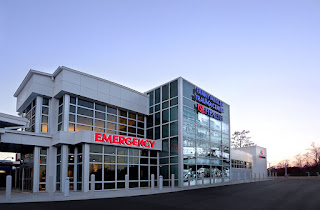 |
| Sarabjeet Kour Sudan, Ph.D., a postdoctoral research fellow, is studying why Black women are disproportionately affected by breast cancer. |
Black women have earlier onset of breast cancer, are frequently diagnosed with aggressive triple-negative subtype, and have higher mortality rates when compared with white women. Although socioeconomic differences and access to healthcare have long been believed to be the underlying causes of such racial disparities, an interplay of social and biological factors might also play a role, Sudan said.
“We hypothesize that socioeconomic hardships faced by African American women may alter their physiology through release of stress hormones,” she said. “Further, it may also affect their dietary choices and lifestyle behavior, leading to increased obesity and inflammation, thus putting them at higher risk of developing cancer.”
To test their hypothesis, researchers analyzed more than 150 blood samples collected from Black and white women, with and without breast cancer diagnoses, who visited USA Health clinics in the past two to three years. They also collected their socioeconomic and stress exposure data through a survey.“We found that African American women had higher levels of stress, obesity and inflammation-associated hormones and cytokines in their serum as compared to white women, regardless of their breast cancer diagnosis,” Sudan said. “Moreover, we found that the levels of these hormones and cytokines were increased in women with a breast cancer diagnosis relative to the non-cancer subjects.”
In addition, researchers detected differential presence of certain microRNAs in the blood serum of Black women. In parallel studies, they have found that these microRNAs have immunosuppressive functions and promote the growth of breast cancer cells.
“Our findings suggest a novel sociobiological link for the breast cancer disparities in African American women. These biological differences could be exploited for risk-prediction and to guide early interventions for minimizing the disparity gaps,” she said.
Sudan received a travel award from the Geographic Management of Cancer Health Disparities Program (GMaP) Region 2, funded by the National Cancer Institute, to attend the meeting. AACR is the world’s largest cancer research organization, and thousands of scientists from around the world attend the annual meeting.
“Having an opportunity to share my findings with my peers and senior scientists will be a great experience,” she said. “It will allow me to build a network with other cancer disparity scientists, receive their feedback, and possibly develop new collaborations to widen my research scope.”
Sudan works in the lab with mentor Seema Singh, Ph.D., professor of pathology and a senior member of the Cancer Biology Program at the MCI, whose work is supported through a grant from the National Cancer Institute.
Collaborators on the project are Lynn Dyess, M.D., a breast/endocrine surgeon and professor of surgery; Teja Poosarla, M.D., a former oncologist at the MCI; Nicolette Holliday, M.D., an obstetrician/gynecologist and associate professor of obstetrics and gynecology; Jennifer Young Pierce, M.D., M.P.H., a gynecologic oncologist, head of the Cancer Control and Prevention Program at the MCI, and professor of obstetrics and gynecology; Casey Daniel, Ph.D., M.P.H., director of epidemiology and public health, and associate professor of family medicine; and Ajay Singh, Ph.D., head of the Cancer Biology and Cancer Health Disparities Programs at the MCI and professor of pathology.
Sudan received her doctoral degree from CSIR-Institute of Microbial Technology in Chandigarh, India. She was the recipient of a senior research fellowship from DST-Innovation in Science Pursuit for Inspired Research (INSPIRE), a research agency in India.








